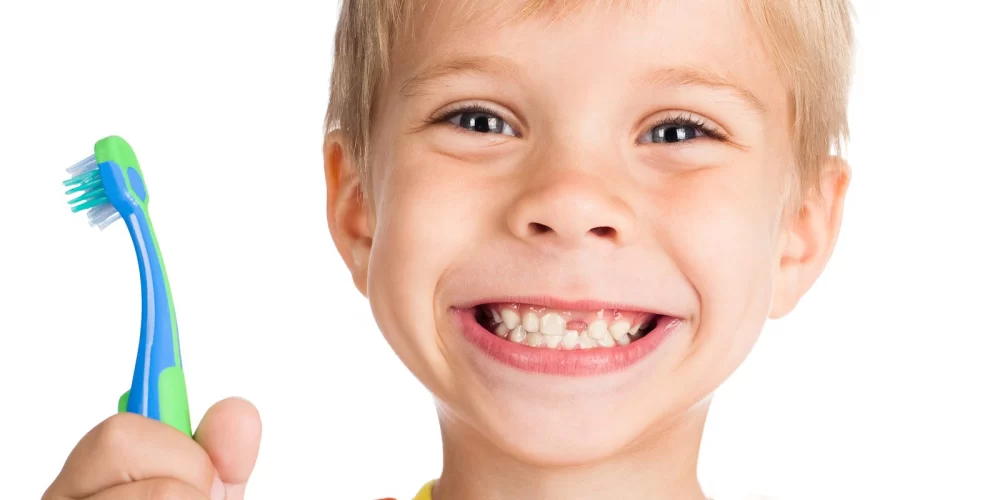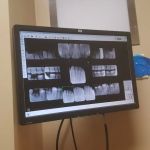
Best Practices for Brushing Kids' Teeth at Night
Ensuring your child's dental health starts early, and one of the most important steps in building good oral hygiene habits is brushing their teeth at night. Nighttime brushing is crucial because it helps remove the day's food particles and plaque buildup, preventing cavities and gum disease. But how do you make sure you're brushing effectively? And how do you make it a positive experience for your child? Let’s explore the best practices for brushing kids’ teeth at night to ensure their smiles stay healthy and bright.
Why Nighttime Brushing is So Important
Brushing at night is more important than brushing during the day for several reasons. After eating throughout the day, your child's mouth becomes a haven for bacteria and food particles. If these aren't cleaned away before bedtime, they can contribute to plaque buildup and tooth decay. Moreover, saliva production decreases while children sleep, making their teeth more vulnerable to the harmful effects of bacteria. Without proper brushing, cavities can develop overnight, leading to dental problems down the road. By brushing before bed, you give your child’s teeth a fighting chance while they sleep.
Step-by-Step Guide to Brushing Kids’ Teeth at Night
Brushing children's teeth at night requires some extra attention and care, especially if they're young and still learning the ropes of proper oral hygiene. Here’s a step-by-step guide to ensure you're doing it right:
1. Choose the Right Toothbrush and Toothpaste
When it comes to kids' toothbrushes, size matters. Make sure you're using a toothbrush with soft bristles and a small head designed for children's mouths. A toothbrush with a fun design or their favorite character can help make brushing more exciting. For toothpaste, use a fluoride toothpaste appropriate for their age. For children under 3, use a small smear of toothpaste, and for those 3 and older, a pea-sized amount is enough. Avoid swallowing toothpaste, as it can lead to an upset stomach or fluoride toxicity.
2. Set the Scene for Nighttime Brushing
Setting a consistent, calming bedtime routine helps your child associate tooth brushing with relaxation and care. Create a calm environment by brushing after their evening bath or after a quiet activity, like reading a book. Keeping the process the same every night helps your child develop a routine and feel more comfortable with brushing their teeth.
3. Use the Right Technique
Teaching your child proper brushing technique is crucial. You want to make sure they’re brushing all surfaces of their teeth and doing it thoroughly. Here’s how:
- Hold the toothbrush at a 45-degree angle to the gums.
- Gently move the brush in small circular motions, focusing on one or two teeth at a time.
- Brush the outer, inner, and chewing surfaces of each tooth, as well as the tongue, to remove bacteria and prevent bad breath.
- Make sure to brush for at least two minutes, covering all areas of the mouth.
4. Make It Fun and Interactive
Nighttime brushing can sometimes feel like a chore to kids, so it’s helpful to make it fun. You can do this by:
- Letting them pick out their own toothbrush or toothpaste with their favorite characters.
- Playing a fun brushing song or using a timer so they know when the two minutes are up.
- Brushing together so your child can imitate you—children love to mimic their parents!
- Creating a "tooth brushing chart" to reward them with stickers for completing their routine each night.
5. Supervise and Help When Needed
Even though your child may want to brush their teeth on their own, it's important to supervise the process until they're about 7 or 8 years old. By this age, most kids have the coordination to brush their teeth independently, but younger children may need help to ensure they're brushing properly and not missing any spots. You can step in and help them reach the back teeth or gently remind them of the correct brushing technique.
Dealing with Common Issues in Nighttime Brushing
Sometimes, brushing at night can be a challenge. Here are some common issues parents face and tips for overcoming them:
1. Resistance to Brushing
Many children resist brushing their teeth, especially if they’re tired or distracted. If your child is having a hard time accepting brushing, try to keep the experience fun and stress-free. Keep a positive attitude, and avoid turning it into a power struggle. Offer them choices (like letting them choose between two toothbrushes), sing a song, or incorporate their favorite toy into the routine to make the experience more engaging.
2. Difficulty Reaching Back Teeth
Reaching the back teeth can be tricky, but it's important for preventing cavities in these hard-to-reach areas. For younger children who might struggle to handle a toothbrush properly, you can help by gently brushing the back teeth for them. You may also consider switching to an electric toothbrush, as these can make brushing easier for children and more effective at cleaning difficult areas.
3. The Fear of Toothpaste
Some children are hesitant about the taste or sensation of toothpaste. If this is the case, try using a toothpaste with a flavor they enjoy or consider fluoride-free toothpaste if they have sensitivities. Letting them choose the toothpaste can make the experience more enjoyable. If the texture or taste is still an issue, you can simply use water until they become more accustomed to the routine.
When to Start Brushing Your Child's Teeth
It’s never too early to start brushing your child’s teeth. The American Academy of Pediatrics recommends brushing as soon as the first tooth erupts, usually around 6 months of age. For infants, use a soft cloth or baby toothbrush with a small amount of toothpaste to gently clean their gums and emerging teeth. As they grow, transition to using a small toothbrush and eventually help them brush on their own once they develop the skills.
Encouraging Healthy Dental Habits Beyond Brushing
While nighttime brushing is key, healthy dental habits go beyond just brushing. Encourage your child to:
- Drink water throughout the day to keep their mouth hydrated and rinse away food particles.
- Limit sugary snacks and drinks, which can contribute to cavities and plaque buildup.
- Visit the dentist regularly for checkups and cleanings.
- Floss daily, especially as their permanent teeth start to come in.
By instilling these habits early, you're setting your child up for a lifetime of good oral health and happy, healthy smiles!







 Sky Dental Group2.0 (54 review)
Sky Dental Group2.0 (54 review) Dr. Daniel S. Fife, DDS4.0 (31 review)
Dr. Daniel S. Fife, DDS4.0 (31 review) Wirth Dental, Duane L. Wirth DDS, David L. Wirth DDS5.0 (39 review)
Wirth Dental, Duane L. Wirth DDS, David L. Wirth DDS5.0 (39 review) Apache Dental Center4.0 (760 review)
Apache Dental Center4.0 (760 review) West Coast Dental of South Gate3.0 (495 review)
West Coast Dental of South Gate3.0 (495 review) Hillside Family Dentistry4.0 (108 review)
Hillside Family Dentistry4.0 (108 review) The Importance of Oral Health Education During Pregnancy for a Healthy Pregnancy
The Importance of Oral Health Education During Pregnancy for a Healthy Pregnancy Best Tips for Brushing Your Teeth Properly for Healthy Gums: Essential Techniques for Oral Health
Best Tips for Brushing Your Teeth Properly for Healthy Gums: Essential Techniques for Oral Health Why Skipping Dental Checkups Can Lead to Bigger Oral Health Problems
Why Skipping Dental Checkups Can Lead to Bigger Oral Health Problems Advantages of Porcelain Dental Restorations
Advantages of Porcelain Dental Restorations How Can Diabetes Cause Tooth and Gum Problems? Preventing and Managing Oral Health Issues
How Can Diabetes Cause Tooth and Gum Problems? Preventing and Managing Oral Health Issues Healthy Habits for Promoting Good Oral Health and Hygiene: Tips for a Healthy Smile
Healthy Habits for Promoting Good Oral Health and Hygiene: Tips for a Healthy Smile